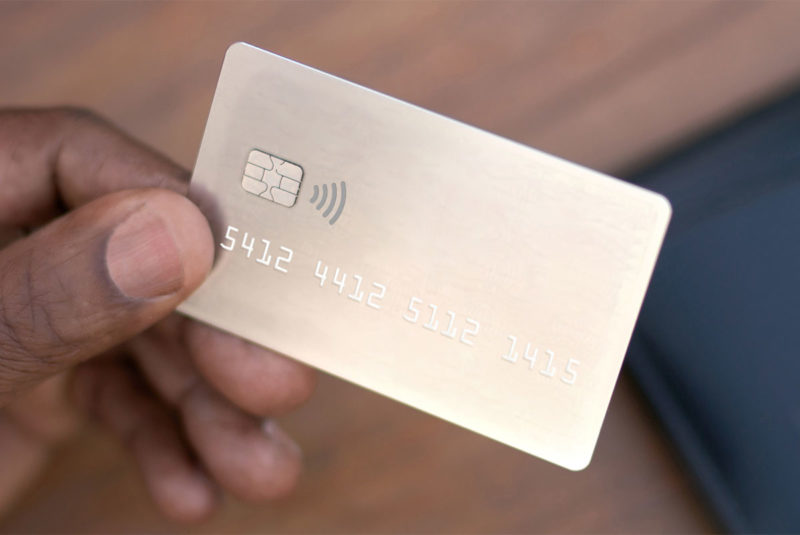Do you have plans to apply for a new credit card in the near future? Maybe you’re considering a new auto loan, mortgage, student loan, or personal loan. Regardless of the type of financing you are seeking, your creditworthiness will play an important role in whether your applications for credit are approved or denied.
What Is Creditworthiness?
Let’s cover your first question right now. What is creditworthiness and how can it be determined?
The general concept of creditworthiness is easy enough to understand. Creditworthiness describes how likely you are to repay a financial obligation according to the terms of your agreement. It’s a measure of how much lenders should trust you, typically based on your credit scores and reports.
Credit scores: The primary measure of creditworthiness
When you apply for financing, lenders largely rely upon two sources of information to determine your creditworthiness — your credit reports and credit scores.
FICO® credit scores are the brand of credit score used in over 90% of U.S. lending decisions. They are designed to predict the likelihood you will become 90 days past due on any credit obligation within the next 24 months. Other scoring models are used to predict the same or related situations.
Your credit scores are three-digit numbers that lenders use to gauge your creditworthiness at a glance. High credit scores mean a person’s creditworthiness will be better in the eyes of a lender – low scores indicate the opposite.
Your credit reports matter because they contain the data upon which your credit scores are based.
The difference between creditworthiness and capacity
Lenders also typically consider financial factors when you apply for a new credit card or loan, in addition to your credit reports and scores.
However, metrics like your income and assets measure your capacity or financial ability to pay as agreed, not your creditworthiness.
While having the capacity to pay is important to lenders, it isn’t the same as being credit-worthy. There are plenty of people with high incomes who don’t have good track records managing credit. Just because you can afford to pay your bills in a timely fashion doesn’t mean that you will do so.
What Factors Affect Your Creditworthiness?
As mentioned above, lenders determine your creditworthiness primarily by considering your credit reports and scores. So, in order for a piece of information to be considered in your creditworthiness evaluation by a lender, it typically has to be included in your credit file with one of the three major credit bureaus — Equifax®, Experian™, or TransUnion®. (Your credit scores, with a few exceptions, are based upon the information contained in your three credit reports as well.)
Essentially, the factors that affect your creditworthiness are the same factors that influence your credit scores.
Credit score creators, like FICO® and VantageScore®, don’t reveal the exact formulas they use to calculate credit scores. However, they do reveal some of the important factors.
Here are a few examples of the types of information that could impact your credit scores (and, by extension, your creditworthiness in the eyes of a lender):
- Are there any late payments on your credit reports? If so, how recent are they and how severe (e.g. 30 days late, 60 days late, 90 days late, etc.)?
- Are you currently past due on any debt obligations? If so, how much do you owe?
- Is there any derogatory information on your credit reports (e.g. collection accounts, repossessions, foreclosures, bankruptcies, etc.)?
- What percentage of your credit limits are you using on your revolving credit card accounts?
- How many accounts with balances appear on your credit reports?
- Do you have experience managing different types of credit accounts (e.g. installment loans, revolving accounts, etc.)?
- How many times have you applied for new credit in the past 12 months?
- What’s the age of your newest account?
- How long ago did you open the oldest account on your credit report?
- What is the average age of accounts on your credit reports?
You’ll notice again that your income isn’t in the list. Of course, having enough money to pay your bills matters a great deal to lenders. It is almost certainly a factor lenders will consider when you apply for a loan.
Yet income isn’t a metric that credit scoring models consider (at least not anymore). Ergo, income isn’t a factor used to measure creditworthiness.
Income affects your ability to pay your bills. It doesn’t affect whether you’ll choose to pay them.
Which Factors Don’t Affect Creditworthiness?
Besides your income, here are some other factors that do not affect your credit scores or your creditworthiness in the eyes of a lender. In fact, according to the Equal Credit Opportunity Act (ECOA), it might be illegal for lenders to consider some of these factors in a creditworthiness evaluation, even if they wanted to.
- Bank account balances
- Retirement accounts
- Assets
- Your age
- Religious beliefs
- Race, color, or national origin
- Gender
- Whether you receive public assistance
How Can You Improve Your Creditworthiness?
It’s a good idea to remain creditworthy at all times, even if you don’t have any immediate plans to apply for new financing. You never know when an opportunity might arise (or an emergency may strike). Plus, maintaining good credit can save you money in ways you might not have considered before.
If your credit isn’t currently in the best shape, the good news is that you can work to change your situation for the better. You can take several steps to improve or maintain creditworthiness:
- Pay your bills on time, every time. Your credit history is the most important factor considered in your credit scores. Even the occasional late payment can affect your creditworthiness.
- Pay down your credit card balances. High credit card utilization may indicate to lenders that you’re a riskier borrower, so make payments before the statement closing date.
- Be choosy about how often you apply for new credit. Don’t be afraid to fill out a credit card or loan application when you need or want to open a new account. However, you probably shouldn’t apply for new credit every time you see a discount offer or a cashier offers you a card (because having fewer hard inquiries on your credit report is better).
- Consider establishing or building credit, if needed. If your credit reports are thin or your scores are poor, you might think about adding a new account or two to the mix. Just remember, you need to manage your new accounts properly so they have a chance to help improve your creditworthiness, not hurt it.
Keep in mind that your credit doesn’t need to be perfect to qualify for financing either. (Though, better credit typically means better rates and terms). If your creditworthiness isn’t so great at the moment, a larger down payment or shorter loan term might make lenders more comfortable about doing business with you as well.
Be Patient
Creditworthiness is primarily measured by your credit scores. So, when you’re working to improve your credit, it can take some time for your new, positive actions to take effect.
For example, just because you establish a new credit card account and pay on time, that doesn’t erase any late payments or collection accounts that are already damaging your credit. The more negative activity on your credit reports, the harder it will be to improve your creditworthiness. But if you don’t have negative marks, you’ll likely see your scores rise fairly quickly.
Remember that progress is progress, even if it’s slow. Stay the course. Over time your new, positive credit management habits can begin to pay off.
The Short Version
- Creditworthiness measures how likely you are to repay your debts, and responsible financial choices can help you score higher
- When you apply for financing, lenders largely rely upon two sources of information to determine your creditworthiness — your credit reports and credit scores
- It’s a good idea to remain creditworthy at all times, even if you don’t have any immediate plans to apply for new financing




